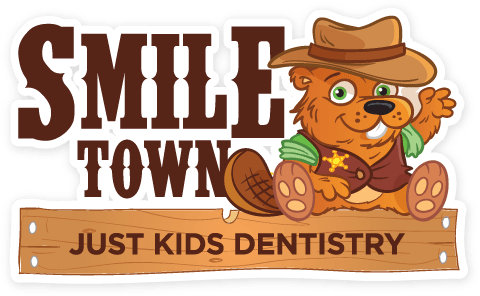Oral Education:

Oral education involves teaching children and parents good oral hygiene practices to maintain healthy teeth and gums. This education can start at an early age and include topics such as proper brushing and flossing techniques, healthy eating habits and regular dental checkups.
In addition to promoting good oral hygiene practices, oral education can also address the potential consequences of neglecting dental care, such as cavities, gum disease and tooth loss. This can motivate individuals to take better care of their teeth and gums and make regular dental checkups a priority. Overall, oral education is a critical component of maintaining good oral health throughout one’s lifetime. By promoting healthy habits and educating children on the importance of regular dental care, we can help prevent many oral health problems and ensure healthy teeth and gums for years to come.
SmileTown: Just Kids Dentistry visits various elementary schools across Kitchener–Waterloo, Cambridge and Guelph to deliver interactive presentations to promote oral health to children.
FAQ
At what age should children start learning about oral hygiene?
Oral education needs to be imparted to children by the end of two years of age. During this phase, parents can teach the basic ideas Of brushing their teeth and the need to maintain them. By the age of three years, children can begin using a soft toothbrush and fluoride toothpaste under supervision. These practices, if perhaps built up from a tender age, allow for the promotion of oral training education and healthy dental practices throughout a person’s life.
How can oral education help prevent cavities and gum disease in children?
Providing oral education can greatly help in reducing the incidence of cavities and gum diseases in these children as they learn healthy dental habits. For example, already as young children, they are taught about the need to brush their teeth two times a day, the need to use dental floss and to visit the dentist routinely, so by biological factors, they tend to adopt such practices in their sets of behaviour. In addition, knowing why sugary treats are bad helps them eat healthier and keep their teeth healthier overall.
What techniques are used to teach kids good brushing and flossing habits?
In order to provide oral education to children about brushing and flossing and to encourage them to develop these habits, methods such as puppet shows, illustrated lecturing, and skill practices have been included. Edited drawings, charts, motion pictures or any other media aids are incorporated to clarify how things are done. Applications like stickers as rewards encourage the practice over time. And since it is impossible to part parents from the learning process, such considerate involvement helps, as well, to build the habits at home, creating years of oral health practices for the children.
Can oral education improve a child’s comfort level during dental visits?
Definitely, oral education enhances the level of comfort of a child in a dental office. Contacting a child’s age-appropriate information concerning management and dental procedures helps prepare the child and makes him or her more comfortable. Search other ways, for example, storytelling, games and conversations, to remove the fear and anxiety related to the dental visit, making them more inquisitive and positive about their oral hygiene and care.
How often should kids receive oral education sessions?
In order to guarantee steady practice and skill growth, children should have oral education sessions on a weekly basis at the minimum. Such periodic sessions help improve their communication skills, vocabulary, and self-assurance. Additionally, oral education may be applied in everyday lessons, for example, in the form of storytelling or debates, to aid in the learning process. Having frequent sessions is essential to both the children and the teachers who desire to teach young ones effective oral communication.

